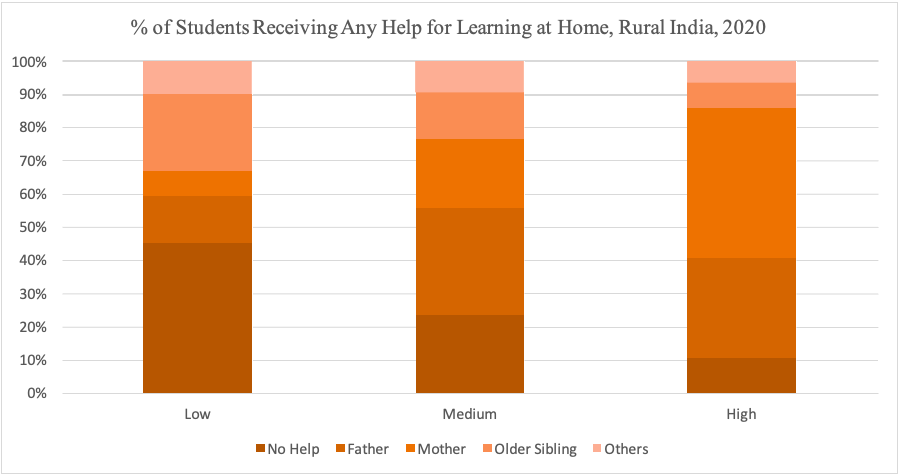[This is an extract from a report entitled ‘A Pandemic that Ended Education for Many: A Report by the Indian Researcher’ Published by the Student Federation of India’s Indian Researcher, on 10 August 2021, pp. 24-26.]
- More than 38 per cent of School-going children had no access to smart-phones in rural India. This divide is further pronounced by the type of school management. A little more than 43 per cent of students from public schools had no access to smart-phones during the lockdown period of 2020 (Pratham, Annual Status of Education Report (ASER) 2020, Wave I, 2021).

- We also observe a worrisome response, when the parents of the students from rural sections were asked about lack of access to educational material during the reference week of the ASER First Wave Survey. A Parent could report more than a single reason for not receiving learning material from school, therefore the row totals can add up to more than 100 per cent here. Almost one in four parents reported not having access to smart phone in rural India and one in ten parents reported no internet access (ASER 2020, Wave I).

Widening the Socio-Economic Divide in School Education: Broader Impacts of Digital Divide in Rural India
- If we assume a proxy of education level of parents for the socio-economic position of the households, then the current socio-economic divide of the ‘digital education’ becomes much more prominent. More than 45 per cent of students with low parental education (i.e. less than primary level education for parents) gets no help in learning at home. (ASER Wave-I, 2021). This improves with levels of parental education, and most importantly, 45 per cent of the students whose parents are under ‘High’ category of education, receive help from their mother.

- Micro-level village based studies also conform to the same pattern. Access to alternative forms of classes and assistance from parents or any other family members are closely linked to the socio-economic status of the household in rural India. A Telephonic interview based study conducted by the Foundation for Agrarian Studies, report, “…All students in India, and perhaps in many parts of the world, have suffered during the lockdown, but the worst-hit were those who did not have any place to study other than school itself.”